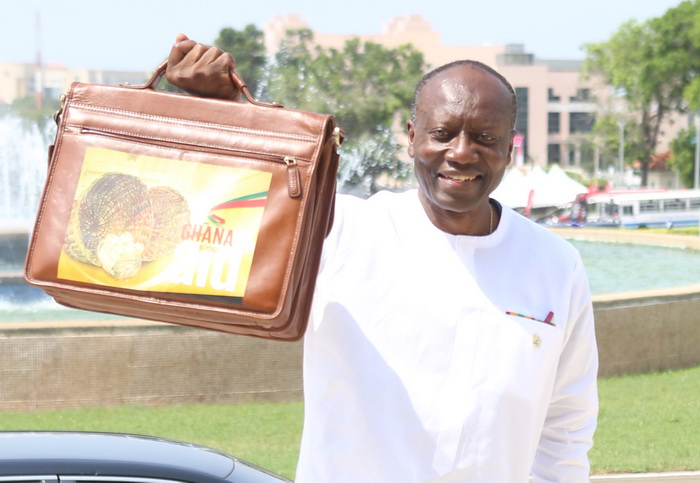
2018 Budget to stimulate growth
The Finance Minister, Mr Ken Ofori-Atta, will on Wednesday present the 2018 Budget and Economic Policy of the government to Parliament, in which he will be seeking approval to spend some GH¢61 billion.
The amount is needed to anchor the government’s agenda of moving the economy beyond the reliance on foreign support or aid.
The budget is, therefore, expected to focus on ensuring macroeconomic stability, transforming agriculture and industry, strengthening social protection and inclusion, building on economic and social infrastructure and reforming public service delivery institutions.
The minister is expected to announce a number of initiatives towards stimulating economic activities and ultimately ensuring economic growth and the creation of jobs.
Mr Ofori-Atta, according to sources close to the Ministry of Finance, would also articulate strategies meant to ensure that the private sector led the economic growth and transformation.
This is strongly supported by the announcement by President Nana Addo Dankwa Akufo-Addo at the Ghana Industry Quality Awards in Accra organised by the Association of Ghana Industries (AGI) last Saturday night that the 2018 budget would set out the road map for the downward review of electricity tariffs in order to provide industry with impetus to actively lead the government’s economic transformational agenda.
“Furthermore, the government is moving to set in motion the processes for the review of electricity tariffs, and in the budget to be read by the Minister of Finance next Wednesday, November 15, I am sure you will hear something good in this regard,” the President had said, to the delight of captains of industry.
He had maintained that “industry is going to be given all the assistance we can muster”.
Looking ahead to a future of possibilities anchored on a robust private sector, the President had declared: “I would like to see more collaboration between the private sector and government within the framework of public/private partnership, with significant, if not majoritarian, domestic content as a strategic option to attain economic growth.”
Revenue mobilisation
The government's biggest challenge this year has been revenue mobilisation, evident in the fact that in July it had to revise its target.
Consequently, it is expected that the 2018 budget will introduce a raft of aggressive measures to ramp up domestic resource mobilisation.
On the expenditure side, the mounting wage bill, which is about GH¢16 billion, is being further exacerbated by internal wage fraud and the weaknesses in payroll management, among other challenges.
Besides the mounting wage bill, another headache of the government will be the high public debt, which is now nearing 70 per cent of gross domestic product (GDP). Very crucial is the high interest payments on the loans which eat about 35 per cent of tax revenue.
Mr Ofori-Atta is also expected to announce measures to re-profile the debts and lengthen the tenor (repayment period) from short term to medium and long term to avoid a situation where the government has to go to the market every week anxiously seeking funds to meet its liabilities which fall due so quickly.
Expenditure
Out of the GH¢61 billion that the minister will be requesting, the Daily Graphic understands that allocations to ministries, departments and agencies (MDAs) will constitute about 50 per cent, which will be disbursed into sectors such as social, real estate, infrastructure and good governance.
The remaining 50 per cent is likely to be allocated to other government units.
For instance, GH¢3.5 billion is likely to be allocated to the real estate sector; GH¢1 billion will be earmarked for the government's flagship Planting for Food and Jobs programme, while the one-district, one-factory policy will receive GH¢430 million, with an announcement of a GH¢100 million stimulus package for distressed but viable industries.
Infrastructure and social sector
With regard to the social sector, the Daily Graphic has gathered that the government is likely to earmark about GH¢14 billion for the sector.
Other allocations under the sector include a little over GH¢1.2 billion to the free SHS programme, about GH¢468.5 million to the school feeding programme, with employee compensation hopefully given around GH¢10.3 billion.
On infrastructure, about GH¢700 million is likely to be earmarked for the Marshal Plan, ostensibly to repair and rehabilitate ‘agriculture roads’, while poverty alleviation programmes are likely to sap about GH¢1.15 billion.
The Zongo Development Fund, whose bill was passed by Parliament last week, may be allocated over GH¢100 million.
